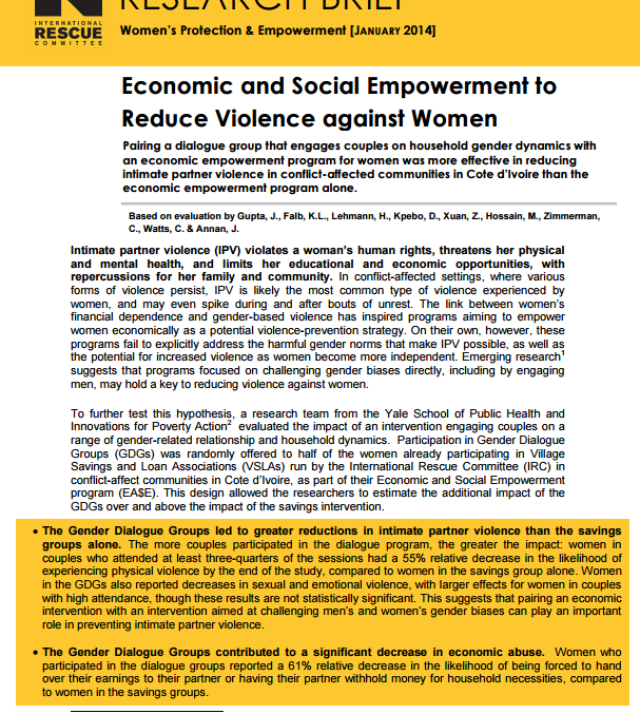This report compiles Rapid Gender Analysis findings and survey data from more than 6,000 women and 4,000 men in nearly 40 countries. Some of the key findings are:
- Livelihoods are shrinking faster for women: 55% of the women CARE spoke to reported that income loss was one of the biggest impacts COVID-19 had for them, compared to only 34% of men. Women are also having a harder time accessing safety nets when they lose their jobs.
- Women prioritize food security: 41% of women and 30% of men reported lack of food was a key impact COVID-19 had on their lives. This difference reflects deeply entrenched gender inequalities in local and global food systems.
- Mental Health is a major concern for women: Women are nearly 3 times more likely to report mental health as a priority impact than men are. 27% of women reported this was a key impact of COVID-19—compared to only 10% of men. Women especially point to skyrocketing unpaid care burdens as a source of this stress, in addition to worries about livelihoods, food, and health care.
- Current responses are falling short: Inequalities are growing. Policymakers and service providers are still using a one-size fits all approach because they are not asking women what they need, or looking at the differences between men and women. The current responses are failing to stem economic crises, hunger, and social turmoil.

